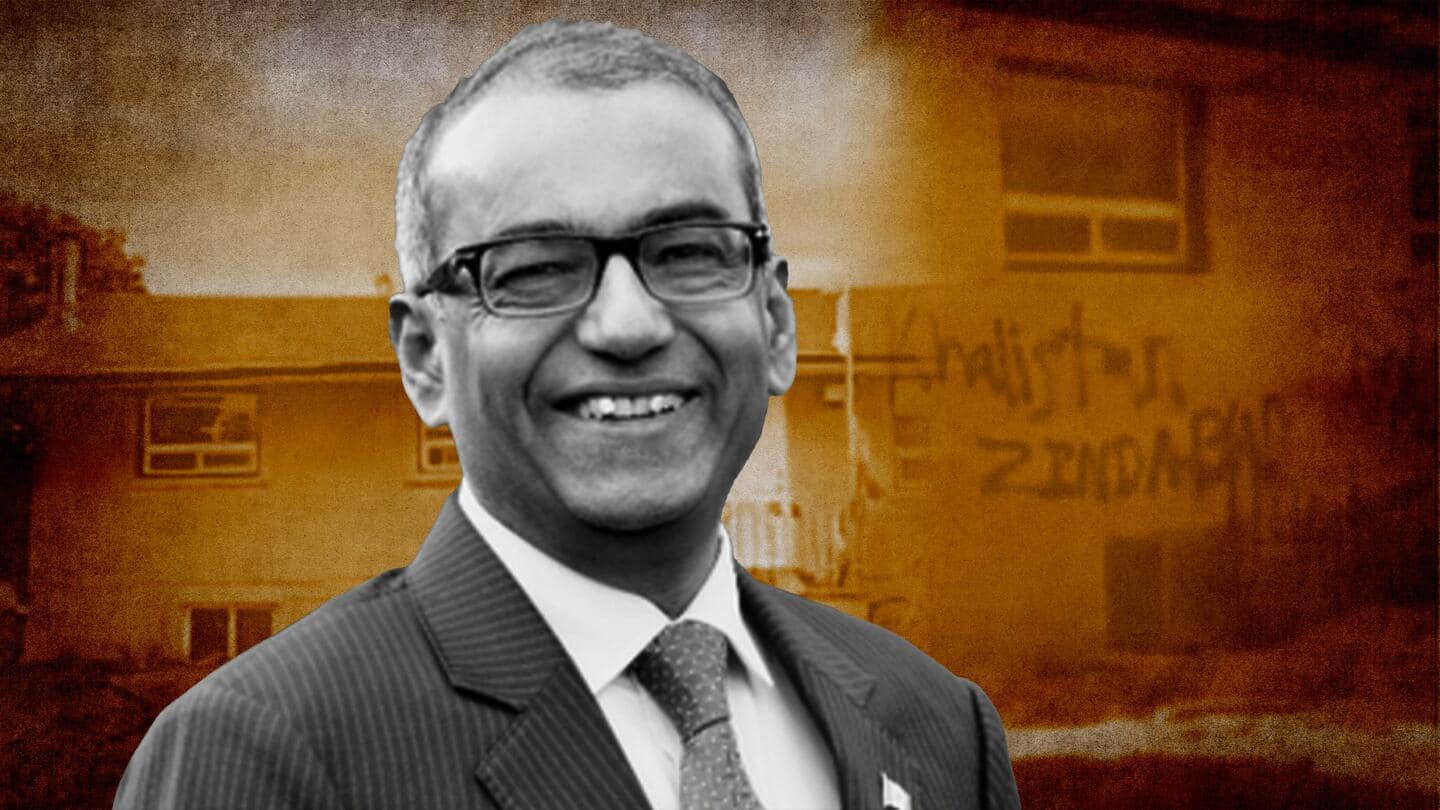
Indian-origin MP raises attack on Brampton temple in Canadian parliament
What's the story
After a Hindu temple Gouri Shankar Mandir was defaced with anti-India graffiti in Canada's Brampton, Indian-origin MP in Canada's parliament, Chandra Arya raised the issue of anti-Hindu and anti-India hate crime on Wednesday. Condemning the vandalism, he said, "The rising Hinduphobia in Canada deeply pains Hindu Canadians." Citing a study, he said that Hinduphobia on social media was graduating to physical attacks.
Context
Why does this story matter?
Last month, three temples were defaced with anti-Hindu graffiti in Australia, allegedly by Khalistan supporters. Before this week's incident, the BAPS Swaminarayan Mandir in Toronto was vandalized in September last year. Around the same time, nearly one lakh people gathered in Brampton to vote in a referendum for Khalistan, despite the Indian government's warning to Canada against "anti-India forces" operating in their land.
Twitter Post
Experiencing pain due to rising Hinduphobia: Arya
My statement in Canadian parliament today on the recent hate crime on Gouri Shankar Hindu Mandir in Brampton pic.twitter.com/8RX92dYjxQ
— Chandra Arya (@AryaCanada) February 1, 2023
Quote
Take note and respond appropriately: Arya to authorities
Likening the phenomenon of Hinduphobia to Islamophobia and antisemitism, Arya said that just as the hatred translates into hate crimes against mosques and synagogues, causing pain to Muslims and Jews, Hindu-Canadians are experiencing similar pain. He called upon the authorities to act against such crimes.
Statement
Indian Consulate General condemned the attack
The Indian Consulate General in Toronto issued a statement on Tuesday condemning the attack. It said the sentiments of the Indian community in Canada were deeply hurt and the concerns on the matter were raised with Canadian authorities, who are investigating the case. Meanwhile, Brampton Mayor Patrick Brown also condemned the attack on the temple, which is a symbol of Indian heritage.
Australia
Two temples attacked within a week in Australia
Two Hindu temples were vandalized with anti-India and anti-Hindu graffiti within a week in Australia's Melbourne, allegedly by Khalistan supporters. Last month's incident at the BAPS Swaminarayan Mandir saw praises written on the walls for Khalistani terrorist Jarnail Singh Bhindranwale, who was the face of the 1980s Sikh militancy that sought greater autonomy for Punjab and was linked to the Khalistan movement.